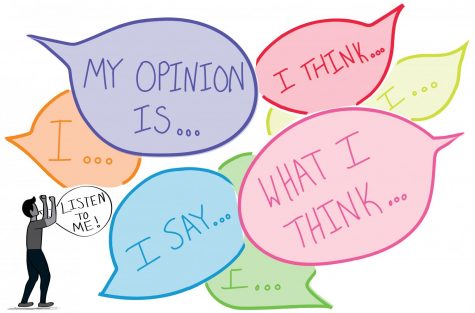OPINION: Language around disability matters
April 8, 2019

People-first disability language has become standard, which means saying “people with disabilities.” This began as a noble goal: to make derogatory terms unacceptable. Moving toward inclusive language was and is the correct path forward, but people-first language has become outdated.
The alternative is called identity-first language, which means saying “disabled people.” This is popular with disabled activists who see disability as an aspect of human diversity instead of a negative. In a March 20, 2015, essay for the website The Body is Not an Apology, disabled activist Cara Liebowitz argues it is not bodies that are disabled, but society that disables people by refusing accommodations.
This idea is called the social model of disability. The medical model of disability—which insists the problem is with disabled bodies that must be “fixed”—still remains the dominant and oppressive narrative. These ideas permeate the language we use. If we want an inclusive society, we must find the language to match.
The choice of language rests firmly with those it applies to, and if someone wants to call themselves a person with a disability, they should. It is the right of the marginalized to use terms which honor them. Journalists should communicate with those they write about to use the most affirming language.
What gets under my skin is when non-disabled people attempt to write guidelines and get angry when disabled people use language they dislike.
The term “person with a disability” fails to acknowledge lived realities. Disabilities are an inextricable part of daily life, and it is impossible to create an accessible society without being mindful of these differences.
Person-first language implies disabled people are exactly the same as non-disabled people as an attempt to empower them, but erasing the visibility and needs of a community is not empowering. The implication that disability is inherently negative and something to be cured erases those with chronic illnesses and injuries that will never be “fixed.” It ignores disabled people who create communities and have no desire to be “cured” for the comfort of non-disabled people.
Identity-first language affirms that disabilities are an integral part of identity and should not be ignored. Centering the experiences of disabled people instead of pushing them to the side allows us to truly see them. We must acknowledge our different needs and experiences in order to create resources, and our language should reflect that. Disabled people are not the problem in a society that demands they change first and request accommodations second.







